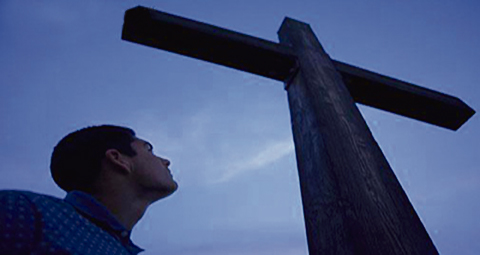June 5 | ![]() 0 COMMENTS
0 COMMENTS ![]() print
print

The deepest secret inside wisdom
Fr Ronald Rolheiser
Everyone longs to know something that’s secret, to know something that others don’t know, but that you know, and the knowledge of which gives you some insight and advantage over others who are outside the inner-circle of that secret. It has always been so. Historically this is called ‘Gnosticism,’ which forever makes an appearance in one form or another.
Today we see this in society at large in the immense popularity of books like The Di Vinci Code and The Celestine Prophecy. Their lure is precisely in the hint that there are secrets that a few elite persons know that contain important, life-altering, information which we, the unenlightened, are ignorant of. Our itch, of course, is to be inside these special circles. We see this paralleled sometimes in religious circles in the over-fascination people have with the private revelations of various self-acclaimed mystics, in special books claiming to disclose critical new revelations from the Blessed Virgin Mary, and in the undue interest shown in things like The Third Secret of Fatima. Gnosticism has many cloaks.
At first glance, Jesus, in Mark’s Gospel, seems to be hinting at just this sort of secret. He tells us there is a secret that is open to us which, if known, puts us into a special circle of enlightenment and community. In Mark 4, 11, He tells His disciples: To you is given the secret of the Kingdom of God, but to those outside everything is in parables. Clearly here Jesus is distinguishing between two circles, one which grasps the secret and is then ‘inside,’ and the other which does not grasp the secret and is then ‘outside.’ Jesus seems to be saying that in following Him we can be either ‘in’ or ‘out,’ depending upon whether or not we grasp a certain secret. Genuine disciples are those who (in today’s terminology) ‘get it,’ and those who ‘don’t get it’ remain outside. But what are we inside or outside of? More importantly, what is the secret?
For Jesus, the secret is the Cross; that’s the deep wisdom we need to grasp. If we understand the cross, all the rest of what Jesus teaches will make sense. Conversely, if we don’t understand the cross, all the rest of what Jesus teaches won’t make sense. Grasping the meaning of the cross is the secret to everything. But how, more concretely, should this be understood? What is the deep secret that lies inside the cross of Jesus? What, in essence, do we need to understand?
Various Biblical commentators answer this in different, complementary ways. For some, it means grasping the wisdom that’s revealed in the cross. For others, it means understanding the brokenness of Jesus on the cross. Still, for others, it means understanding the invitation that is inside the Cross which invites us to live out the demands of the Cross. Each of these, in its own way, points to the most-profound secret of all inside human understanding, namely, that in giving love away in total self-sacrifice, at the cost of humiliation, brokenness, and death, we ourselves come to what’s deepest and fullest in life.
But, unlike all Gnostic secrets, ancient or contemporary, this is an open secret, available to everybody and, paradoxically, more-accessible to the ‘little ones,’ the poor, and more-hidden to ‘the wise and the clever.’ Jesus makes the point that he has no hidden secrets by emphasizing again and again that he only speaks openly and in public, never in secret, but in synagogues and market-places. Jesus has no hidden secrets, only open secrets that we fail to grasp.
Interestingly, we see that, in the Gospels, grasping the secret of the Cross is not something we do once and for all. Sometimes we grasp it, and we are inside the circle of understanding; and sometimes we don’t grasp it, and we are outside the circle of understanding. For example, after Peter denies Jesus during the passion, the Gospels tell us that ‘Peter went outside;’ and they are referring to much more than simply stepping outside through some courtyard door. In denying that he knew Jesus and in not stepping forward to assume the weight of what would happen if he remained faithful, Peter was stepping outside the circle of both true discipleship and of a true understanding of life. His denial of Jesus took him ‘outside.’
We too, in our following of Jesus, sometimes step ‘outside’ when we give in to temptation or adversity. But then, if we repent of our betrayal, like Peter, we can step back ‘inside.’
There are various ways that we can enter into an understanding of Jesus’ message and try to appropriate it for our lives, but few, perhaps none, take us so immediately to the centre as does the invitation from Jesus in the Gospel of Mark to grasp and accept the wisdom of the Cross.
— Fr Ronald Rolheiser is a Catholic priest and member of the Missionary Oblates of Mary Immaculate. He is president of the Oblate School of Theology in San Antonio, Texas. Visit his website at www.ronrolheiser.com











